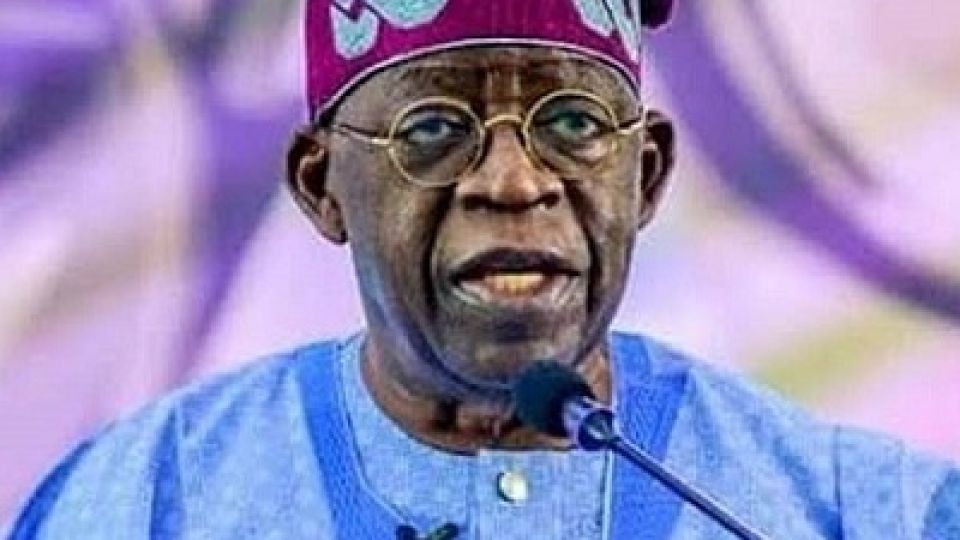from EMEKA OKONKWO in Abuja, Nigeria
Nigeria Bureau
ABUJA, (CAJ News) – RELIGIOUS tensions have returned to haunt Nigeria, this time sparked by the trigger-happiness of new president, Bola Tinubu.
His administration, at the helm of Africa’s largest nation exactly a month now, has gotten off to a crackdown against individuals of the previous government of Muhammadu Buhari.
The security chiefs are the latest casualties, which has again brought to the fore the testy relations between Christians and Muslims in the West African country divided roughly in half between the two religions.
After the purges at the Air force, Army, Navy and Police, Tinubu appointed seven new service chiefs. Five were Christians and the rest Muslim.
The same numbers were repeated when the new president appointed new special advisors.
The Muslim Rights Concern (MURIC) pointed out the “ratio” was 10:4, meaning ten Christians and four Muslims filled the positions.
While MURIC did not raise any qualms about that, the organisation poked the Christian Association of Nigeria (CAN), accusing it of double standards.
“It is unusual for the umbrella body of all Christians in Nigeria to remain quiet for so long particularly after such a momentous development,” said Prof. Ishaq Akintola, MURIC Executive Director.
“A Muslim president has made appointments heavily tilted against Muslims and instead of CAN to commend him the Christian body which is known for its gymnastic criticism and acrobatic intolerance towards Muslim leaders has maintained dead silence”
MURIC alleges CAN is not after fairness and equity.
“The Christian umbrella organisation is only interested in getting everything for Christians while Muslims get nothing. CAN just wants all and will employ any means, both fair and foul, but the latter more often than not,” Akintola said.
The composition of the new cabinet remains to be seen.
By law, Tinubu must name his cabinet within 60 days after taking the oath of office on May 29 and transmit it to the Senate for confirmation.
CAN had not responded to the issue, but its president, Rev. Daniel Okoh, was part of an inter-religious council (NIREC) that condemned the hate speech before and after the elections that brought Tinubu to power and retained the All Progressives Congress (APC) as the ruling party.
“NIREC condemns statements that give the impression of religious dominance and superiority in the country,” it stated.
“We wish however that every Nigerian could be a true Christian or a true Muslim as that would promote the religious values that could transform the nation.”
CAN had previously congratulated Tinubu on his assumption of office as Nigeria’s president and urged him to ensure “a good balance” in the appointment of security chiefs and other top political positions that will help stabilize his government.
“It is crucial that the appointments reflect the diversity of Nigeria, and that qualified individuals from different religious and ethnic backgrounds are given the opportunity to serve in these positions,” CAN stated.
Last weekend, a mob in the northwestern state of Sokoto stoned to death a man identified as Usman Buda Mai Hanji after allegedly degrading the personality of Prophet Muhammad, the founder of Islam.
This came after an argument with another trader at the local abattoir where the now-deceased worked as a butcher.
Some of Anji’s business associates were hospitalised after sustaining injuries.
Governor Ahmed Aliyu Sokoto has appealed for calm and condemned mob justice.
“Our religion (Islam) does not encourage taking laws into one’s hand, so let us try to be good followers of our religion,” he pleaded.
The state governor warned, “Trouble makers must have a change of mind. Sokoto is a wrong place for them.”
Nigeria, Africa’s most populous country (estimated at 220 million), has a history of religious and ethnic tensions.
Religion and ethnicity play a major role in the politics of the West African country that has more than 300 tribes, making it one of the most culturally diverse countries in the world.
There is a gentleman’s agreement that the presidency rotates between the Christian and Muslim dominated regions, which are the south and north respectively.
This administration was the turn of the south to present a president.
The current arrangement got somewhat complicated in that Buhari, a Muslim, handed over power to another Muslim, Tinubu.
Tinubu, the former governor of the commercial state of Lagos, is from the south.
Divisions rocked the main opposition People’s Democratic Party (PDP) after former vice president, Atiku Abubakar, a northerner Muslim, emerged as its presidential candidate.
The party line was that the last man from the PDP to be president, Goodluck Jonathan, was a Christian from the south.
– CAJ News

